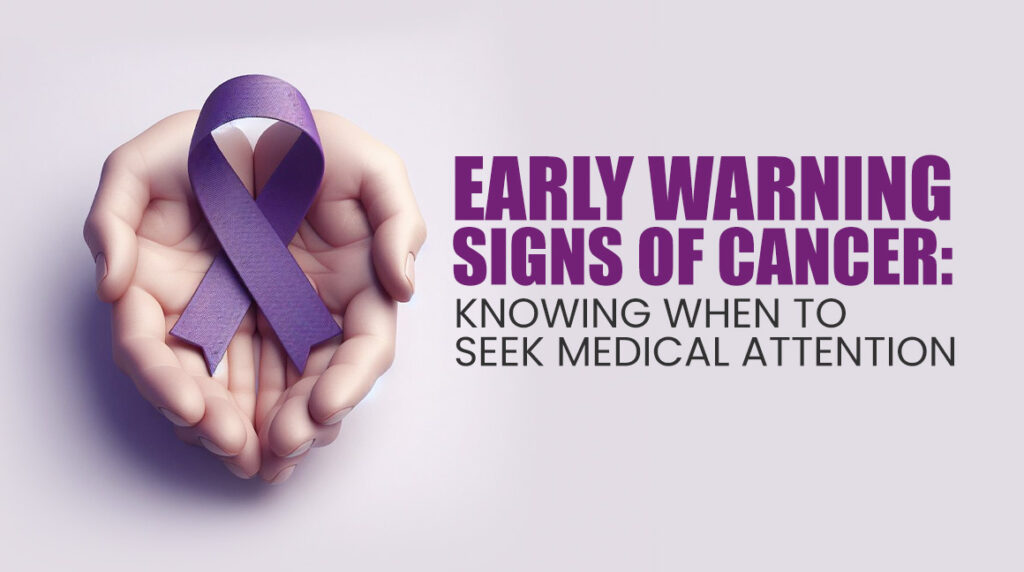
Early Warning Signs of Cancer You Should Never Ignore
1. Unexplained Weight Loss
Losing weight without changes in diet or physical activity might sound like a dream to some (weight loss without any changes), but it can be a serious red flag. Sudden weight loss of 10 pounds or more could be one of the first signs of cancers like pancreatic, stomach, esophageal, or lung cancer and others.
2. Persistent Fatigue
Everyone gets tired now and then it not feel better by rest, but persistent fatigue that doesn’t improve with rest can be more than just a busy schedule catching up with you. Certain cancers, such as leukemia or colon cancer, may cause ongoing tiredness due to internal bleeding or the cancer itself affecting the body’s ability to produce energy.
3. Lumps or Thickening Under the Skin
Finding a new lump or noticing a change in an existing one can be alarming—and it should be. Noticing (Lumps or Thickening Under the Skin),While not all lumps are cancerous, any persistent or growing mass should be checked out. This is especially important for lumps in the breast, testicles, neck, or armpits.
4. Changes in the Skin
Your skin changes or lump tell us what’s happening inside your body. Changes such as new moles, changes in existing moles, sores that don’t heal, or darkening, yellowing, or reddening of the skin may be signs of skin cancer or other internal issues. If something looks unusual and doesn’t go away, get it evaluated.and need to treat.
5. Persistent Cough or Hoarseness
A cough (Persistent and continuous Cough ) that doesn’t go away or a voice that stays hoarse for weeks might indicate more than a lingering cold. Chronic cough or changes in the voice can be signs of lung, throat, or laryngeal cancer—especially if accompanied by blood or chest pain.
6. Unusual Bleeding or Discharge
Any unexpected bleeding (bleeding occurs without any causes) should be taken seriously. Blood in the stool, urine, or from the vagina outside of the normal cycle could be early indicators of cancers such as colorectal, bladder, or cervical cancer. Coughing up blood is another major warning sign. immediate need to diagnosis,
7. Changes in Bowel or Bladder Habits
Frequent constipation, diarrhea, or a change in the size or shape of your stool it may be the colon cancer. Similarly, urinary changes such as difficulty urinating or increased urgency could be linked to bladder or prostate cancer.
8. Difficulty Swallowing
If swallowing becomes painful or feels like food is getting stuck, it might be more than acid reflux. Difficulty swallowing can be a symptom of throat, esophageal, or stomach cancer and should be checked by a doctor, especially if it persists.
9. Chronic Pain
Ongoing pain without a clear cause could be a subtle sign of cancer. Back pain, for instance, might be linked to ovarian, Pancreatic, or spinal cancer. While many aches and pain are due to benign cause, any persistent or worsening pain deserves medical attention.continuous pain from a long time.
10. Fever or Infections That Don’t Go Away
Frequent fevers or infections that don’t resolve as expected might indicate a problem with the immune system, such as leukemia. Cancer can weaken the immune response, making it harder to fight off common illnesses. our immune system is weak not fight to cancer cells